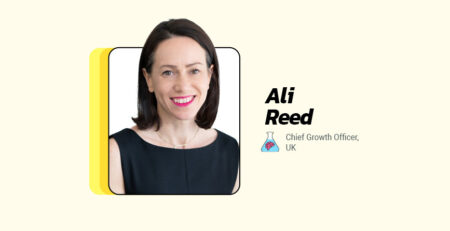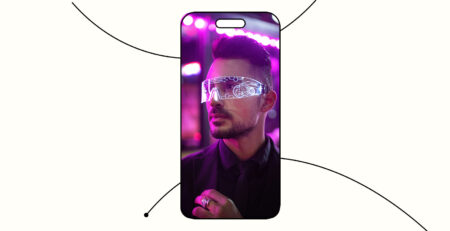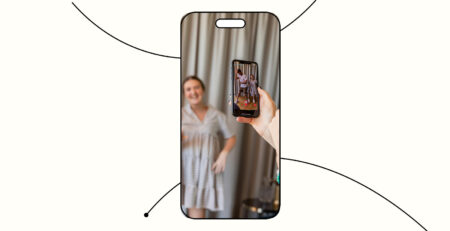How not to do Black History Month like every other brand
October is Black History Month, and every year we see brands scrambling to create content that champions black culture.
But, are they going about it in the right way?
So many brands churn out content that ends up looking exactly like the rest, and this type of approach is often worse than not getting involved at all.
This year, we’re looking deeper into the conversations around the commemoration and exploring how people really feel. How can brands create relevant content and champion black communities year-round? Channelle from Brainlabs shares her personal experiences and insights, and talks about the importance of black pride beyond these 31 days.
Connect with your community
At Brainlabs, we know there’s more to successful marketing than jumping on the bandwagon. It’s all too easy to work with black creators during Black History Month, but if brands don’t actually understand how the community feels, their campaigns will fall flat (and they could be seen as disingenuous). It sounds obvious but still brands continue to make the same mistake. When they do, it just looks like a herd of sheep following each other.
We’ve researched topics around Black History Month and found #blackhistorymonth #blackpride and #influencermarketing are all currently trending:
- #blackhistorymonth has 7.6B views, 12% ER, 5.6M shares, and 115.3M likes
- #blackpride has 217.1M views , 23% ER, 321.8K shares, and 3.9M likes
- #influencermarketing has 815M views, 8.5% ER, 404.4K shares, and 7.7M likes
We’ve also discovered a discourse around natural hair and beauty within the black community. Hashtags #BlackHair, #BlackGirlTikTok, #NaturalHairJourney, #Type4Hair, and #NaturalHairCare are all on the rise.
There are active discussions on TikTok about the perception of natural hair. Some people believe it’s not appropriate for the workplace, the club scene, or other social events. Wigs and weaves have been traditionally seen as more polished or professional, and the pressure to conform to these standards can create the idea that there’s a time and a place for natural hair.
Koko by Khloe sparked controversy in an episode of Bahd and Boujee’s podcast where she stated “Don’t bring your natural hair to my event.” But most people in the comments disagreed. One user commented, “Wow this is actually a motivation to be more natural, I do not want to get to this mentality”, while another said, “She’s too beautiful to be hating herself like that 😭”.
Natural is beautiful
There’s a movement towards decentering these old-fashioned standards and celebrating natural beauty as a form of resistance and self-empowerment. Channelle says, “Ever since I was young, my mom would straighten my hair for any event. You couldn’t go out with your natural hair. It’s so nice to see people saying no – we can take our natural hair anywhere.”
When used for good, TikTok makes it easy to discover content that helps inspire, empower, and celebrate black culture. It offers a platform to rebel against unrealistic beauty standards, take pride in heritage, and educate others to do the same.
@jususpod responded to Khloe’s comment with their own podcast, stating that her mindset digs deep into self-hatred, and @naturaltolu’s video agrees. People should wear their hair however they want to, but be mindful of projecting harmful opinions onto others, especially younger people who are often easily influenced by social media.
We’re seeing more people choosing to wear their natural hair, like TikTok travel creator @kendallrobin.sonn who shared her holiday experience. Channelle says, “Embracing natural hair is increasingly seen as a declaration of self-love, black pride, and cultural identity. Wearing it is celebrated as a way to assert one’s individuality and heritage.”
Brands that get it right
Brainlabs worked with a leading makeup brand to create an inclusive campaign celebrating black talent. Storytelling, influencer transparency, and GRWM content all contributed to the overall success. The campaign generated 496.6K TikTok views, $94.2K EMV, and an 8.81% organic engagement rate, making it their top-performing EMEA campaign of FY24.
@eliefy achieved the highest performance rate by sharing her story and journey with the brand. The creator amassed 111.3K video views and an 11.41% ER on her content alone.
And of course, it’s not just about beauty. No matter the industry, brands must approach Black History Month authentically and respectfully. Messing up could cost customer loyalty and even get a brand canceled for insensitivity. Channelle shares three things all brands should be doing, regardless of their niche.
- Be always on
Black history is not a trend. Campaigns on black culture in October mean nothing if brands neglect to show their support the other 11 months of the year. Yes, brands should create content celebrating Black History Month, but should also review their strategies year-round. Ensuring they work with diverse influencers and ambassadors is a bare minimum in 2024.
- Be aware
Awareness and involvement in conversations are crucial to creating impactful campaigns that show you give a sh*t. Brands need to know what people are talking about in Black History Month. Going deeper than hair, we’re seeing conversations around politics, code-switching, and microaggressions in corporate environments. Our Bytesights 2.0 tool can help brands tap into conversations in their niches to connect with their audience.
- Work with the right people
Not to state the obvious, but content that resonates with black communities should be created by black creators and marketers. Brands should champion voices in the community from every angle. When it comes to choosing the right influencers, Bytesights can also help match brands with creators who align with their values and goals.
Champion the voices that matter…
…And let them own the conversation.
Black History Month is important, but brands must make sure they’re creating content that people actually care about, and integrating this into their year-round strategies. Make sure you promote diversity all year, every year before pushing meaningless campaigns.
If you’re not sure if you’re getting it right, talk to us at Brainlabs. When it comes to advocating for black culture, there’s no room for errors.




